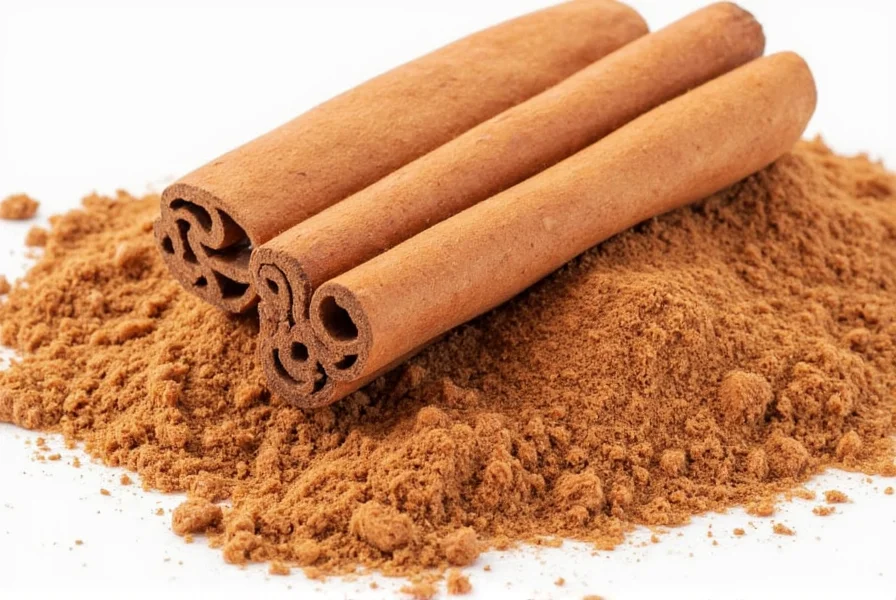For centuries, cinnamon has been valued not just as a culinary spice but as a medicinal herb across various cultures. Modern science is now validating many of these traditional uses while revealing important nuances about its effectiveness and safety. This comprehensive review examines the current scientific evidence behind cinnamon's health properties, differentiating between well-established benefits and areas requiring further research.
Scientifically Supported Health Benefits of Cinnamon
Multiple clinical studies and laboratory research have identified several key health benefits associated with cinnamon consumption. The active compounds responsible for these effects include cinnamaldehyde, cinnamic acid, and cinnamate, which contribute to cinnamon's distinctive flavor and therapeutic properties.
Blood Sugar Regulation and Diabetes Management
One of the most well-documented cinnamon health benefits is its potential to improve blood sugar control. A meta-analysis published in the Journal of Medicinal Food found that cinnamon supplementation significantly reduced fasting blood glucose levels by 10-29% in patients with type 2 diabetes. The mechanism appears to involve improved insulin sensitivity and slowed gastric emptying.
Research suggests cinnamon may mimic insulin's effects at the cellular level, enhancing glucose uptake by cells. However, it's important to note that cinnamon should complement—not replace—standard diabetes treatments. People with diabetes should consult their healthcare provider before adding significant amounts of cinnamon to their regimen.
Powerful Antioxidant Properties
Cinnamon ranks among the spices with the highest antioxidant capacity. A study in Oxidative Medicine and Cellular Longevity found cinnamon contains over 41 protective compounds, with polyphenols being particularly abundant. These antioxidants combat oxidative stress, which contributes to aging and various diseases.
| Spice | ORAC Value per 100g | Antioxidant Rank |
|---|---|---|
| Cloves | 290,283 | 1 |
| Oregano | 200,129 | 2 |
| Cinnamon | 131,420 | 3 |
| Turmeric | 127,068 | 4 |
The Oxygen Radical Absorbance Capacity (ORAC) scale measures antioxidant strength, and cinnamon consistently ranks among the top spices. These antioxidant effects may contribute to cinnamon's potential protective effects against neurodegenerative diseases like Alzheimer's and Parkinson's.
Anti-Inflammatory Effects
Chronic inflammation underlies many serious health conditions. Cinnamaldehyde, the primary compound in cinnamon, demonstrates significant anti-inflammatory activity by inhibiting inflammatory signaling pathways. A review in Antioxidants highlighted cinnamon's ability to reduce inflammatory markers like TNF-α and IL-6 in both animal and human studies.
These anti-inflammatory properties may explain cinnamon's potential benefits for conditions like arthritis, though more human clinical trials are needed to confirm therapeutic applications. Regular consumption of cinnamon as part of a balanced diet may contribute to reducing systemic inflammation.
Heart Health Benefits
Several studies indicate cinnamon may improve multiple risk factors for heart disease. Research published in the American Journal of Clinical Nutrition found that consuming 1-6 grams of cinnamon daily reduced levels of total cholesterol, LDL cholesterol, and triglycerides while maintaining HDL ("good") cholesterol levels.
The spice appears to work through multiple mechanisms, including improved insulin sensitivity (which affects lipid metabolism) and direct effects on cholesterol production pathways. While promising, these findings suggest cinnamon should be viewed as a complementary approach to heart-healthy lifestyle choices rather than a standalone treatment.
Ceylon vs. Cassia Cinnamon: Understanding the Critical Difference
Not all cinnamon is created equal. The two primary varieties available commercially have significant differences that impact both health benefits and safety:
- Cassia cinnamon (from Cinnamomum cassia): More common and less expensive, but contains high levels of coumarin (500-6,000 mg/kg)
- Ceylon cinnamon (from Cinnamomum verum): "True" cinnamon, with significantly lower coumarin content (58 mg/kg)
Coumarin is a naturally occurring compound that can cause liver damage in sensitive individuals when consumed in large amounts over time. The European Food Safety Authority recommends a maximum daily intake of 0.1 mg of coumarin per kilogram of body weight.
For a 150-pound (68 kg) person, this translates to:
- Maximum safe daily intake of Cassia cinnamon: approximately 1-2 grams (about 1/2 to 1 teaspoon)
- Maximum safe daily intake of Ceylon cinnamon: approximately 5+ grams (more than 1 tablespoon)
When purchasing cinnamon, check labels carefully—most supermarket cinnamon is Cassia unless specifically labeled as Ceylon. For regular consumption, especially for therapeutic purposes, Ceylon is generally the safer choice.

Practical Usage and Safety Considerations
To maximize cinnamon health benefits while minimizing potential risks, consider these evidence-based recommendations:
Recommended Daily Intake
Most clinical studies showing benefits used doses between 1-6 grams (approximately 1/2 to 2 teaspoons) of cinnamon daily. For regular consumption:
- Cassia cinnamon: Limit to 1-2 grams (about 1/2 teaspoon) per day
- Ceylon cinnamon: Up to 5-6 grams (about 1 tablespoon) per day appears safe for most people
These amounts provide sufficient active compounds for potential health benefits while staying within safe coumarin limits.
Potential Side Effects and Interactions
Cinnamon is generally safe when consumed in culinary amounts, but higher therapeutic doses may cause:
- Oral irritation or mouth sores (especially with cinnamon oil or extracts)
- Increased risk of bleeding when taken with blood-thinning medications
- Potential interactions with diabetes medications (may enhance effects)
- Rare cases of liver toxicity with excessive Cassia consumption
Individuals with liver conditions, pregnant women, and those taking medications should consult healthcare providers before using cinnamon medicinally.
Best Ways to Incorporate Cinnamon Into Your Diet
Maximize cinnamon health benefits through these practical applications:
- Add to morning coffee, tea, or smoothies (1/4-1/2 teaspoon)
- Sprinkle on oatmeal, yogurt, or fruit
- Use in savory dishes like curries and stews
- Combine with honey for a natural cough remedy
- Add to baked goods for reduced sugar recipes

Limitations of Current Research
While promising, cinnamon research has several limitations that consumers should understand:
- Many studies use concentrated extracts rather than culinary amounts
- Human clinical trials are often small and short-term
- Results vary significantly between cinnamon types and sources
- Long-term safety data for therapeutic doses is limited
Cinnamon should be viewed as part of an overall healthy lifestyle rather than a miracle cure. Its benefits are most pronounced when combined with other healthy habits like balanced nutrition and regular exercise.
Conclusion
Cinnamon offers several evidence-based health benefits, particularly for blood sugar regulation, antioxidant protection, and inflammation reduction. The distinction between Ceylon and Cassia varieties is crucial for both effectiveness and safety, with Ceylon being preferable for regular consumption due to its lower coumarin content.
When incorporating cinnamon into your health regimen, focus on moderate culinary use rather than high-dose supplementation. Pairing cinnamon with other healthy lifestyle choices provides the most significant benefits. As research continues to evolve, we'll gain a clearer understanding of cinnamon's optimal applications for supporting human health.
Frequently Asked Questions
Does cinnamon really lower blood sugar?
Yes, multiple clinical studies show cinnamon can reduce fasting blood glucose levels by 10-29% in people with type 2 diabetes. The effect appears to come from improved insulin sensitivity and slowed gastric emptying. However, cinnamon should complement—not replace—standard diabetes treatments, and effects vary between individuals.
What's the difference between Ceylon and Cassia cinnamon?
Ceylon cinnamon ("true" cinnamon) comes from Cinnamomum verum and has multiple thin layers in its sticks. It contains significantly less coumarin (about 58 mg/kg) than Cassia cinnamon (500-6,000 mg/kg), making it safer for regular consumption. Cassia is more common and less expensive but should be limited to 1-2 grams daily due to coumarin content.
How much cinnamon should I take daily for health benefits?
For Cassia cinnamon, limit to 1-2 grams (about 1/2 teaspoon) daily due to coumarin content. Ceylon cinnamon allows for higher intake—up to 5-6 grams (about 1 tablespoon) daily. Most studies showing benefits used 1-6 grams daily, but regular culinary use (1/4-1/2 teaspoon) provides health benefits while staying within safe limits.
Can cinnamon help with weight loss?
While some preliminary research suggests cinnamon may support metabolic health, there's insufficient evidence that cinnamon directly causes weight loss. Any potential weight management benefits would likely come indirectly through improved blood sugar control and reduced cravings, but cinnamon alone won't produce significant weight loss without dietary and lifestyle changes.
Is it safe to take cinnamon every day?
Yes, when consumed in culinary amounts (1/4-1/2 teaspoon daily), both Ceylon and Cassia cinnamon are generally safe for daily use. For therapeutic doses, Ceylon cinnamon is safer for daily consumption due to its lower coumarin content. People with liver conditions, pregnant women, and those on certain medications should consult healthcare providers before regular therapeutic use.











 浙公网安备
33010002000092号
浙公网安备
33010002000092号 浙B2-20120091-4
浙B2-20120091-4